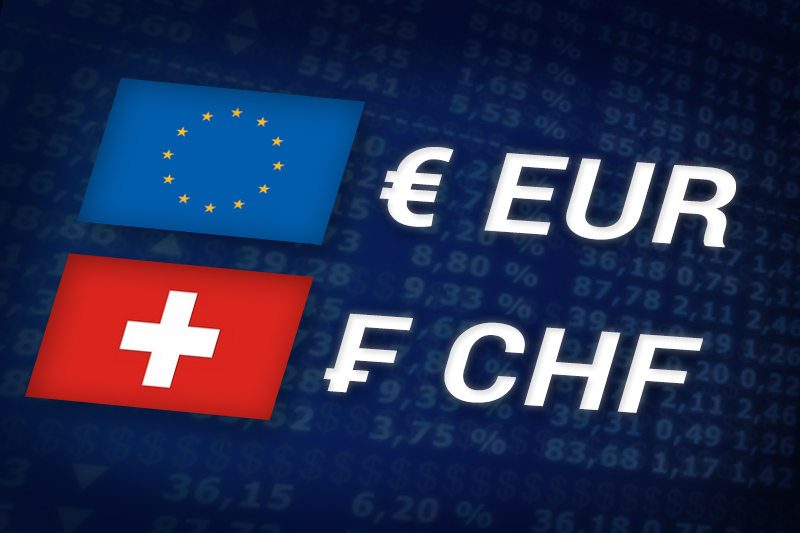Investing.com – The euro was up sharply against the Swiss franc on Thursday, climbing to a two-day high after comments from Swiss National Bank Vice President Thomas Jordan fuelled speculation the central bank might link the franc to the euro.
EUR/CHF hit 1.0817 during U.S. morning trade, the highest since August 9; the pair subsequently consolidated at 1.0715, soaring 4.02%.
The pair was likely to find support at 1.0066, the low of August 9 and the all-time low and resistance at 1.0991, the high of August 8.
SNB Vice President Thomas Jordan said earlier that the central bank could further ease monetary policy without having to intervene in the currency market to curb the franc’s recent gains.
Jordan added that a temporary tie between the Swiss franc and the euro would be legal under the SNB’s mandate.
“Any temporary measures to influence the exchange rate are permissible under our mandate as long as these are consistent with long-term price stability,” Jordan said.
Meanwhile, central bank officials declined to comment on speculation that Swiss lenders might start charging 1% on franc deposits from as early as next week.
On Wednesday, the central bank announced that it would take additional measures, including increasing liquidity to the money market and conducting foreign exchange swap transactions to curb recent gains in the Swissie.
Last week, the SNB narrowed its three-month Libor rate to 0.25% from 0.75%, saying the currency was “massively overvalued” and adding that it “won't tolerate” a “tightening of monetary conditions” and therefore was taking measures against the franc.
Elsewhere, the euro was also higher against the yen, with EUR/JPY adding 0.05% to hit 109.02.
The euro spiked higher against the yen earlier before falling back, sparking speculation that the Bank of Japan stepped in to curb the yen’s recent sharp gains.
However, an official from the country’s Ministry of Finance declined to comment on the sudden movement in the pair and whether the government was intervening in the market.
Traders added that the BoJ conducted a foreign-exchange rate check Thursday, which triggered the yen’s slide.
EUR/CHF hit 1.0817 during U.S. morning trade, the highest since August 9; the pair subsequently consolidated at 1.0715, soaring 4.02%.
The pair was likely to find support at 1.0066, the low of August 9 and the all-time low and resistance at 1.0991, the high of August 8.
SNB Vice President Thomas Jordan said earlier that the central bank could further ease monetary policy without having to intervene in the currency market to curb the franc’s recent gains.
Jordan added that a temporary tie between the Swiss franc and the euro would be legal under the SNB’s mandate.
“Any temporary measures to influence the exchange rate are permissible under our mandate as long as these are consistent with long-term price stability,” Jordan said.
Meanwhile, central bank officials declined to comment on speculation that Swiss lenders might start charging 1% on franc deposits from as early as next week.
On Wednesday, the central bank announced that it would take additional measures, including increasing liquidity to the money market and conducting foreign exchange swap transactions to curb recent gains in the Swissie.
Last week, the SNB narrowed its three-month Libor rate to 0.25% from 0.75%, saying the currency was “massively overvalued” and adding that it “won't tolerate” a “tightening of monetary conditions” and therefore was taking measures against the franc.
Elsewhere, the euro was also higher against the yen, with EUR/JPY adding 0.05% to hit 109.02.
The euro spiked higher against the yen earlier before falling back, sparking speculation that the Bank of Japan stepped in to curb the yen’s recent sharp gains.
However, an official from the country’s Ministry of Finance declined to comment on the sudden movement in the pair and whether the government was intervening in the market.
Traders added that the BoJ conducted a foreign-exchange rate check Thursday, which triggered the yen’s slide.
